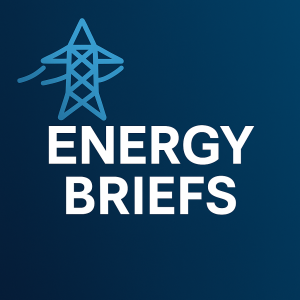
DOE Advances AI Power Grid Access
The U.S. Department of Energy (DOE) is taking bold steps to power AI data centers while using artificial intelligence to accelerate energy technology breakthroughs.
Energy Secretary Chris Wright directed federal regulators to consider a new rule that would speed up the connection of AI data centers to the nation’s electric grids. The proposal would grant priority access to large power loads that can ramp up or down quickly, helping utilities meet demand fluctuations created by the growth of AI-driven infrastructure.
Industry experts say the initiative highlights how AI’s hunger for power is reshaping grid policy and investment. Wright emphasized that new technologies must not just consume power but help “optimize and stabilize” energy delivery across expanding networks.
Federal Investigation of Offshore Wind Impact
U.S. Health Secretary Robert F. Kennedy Jr. ordered the Centers for Disease Control and Prevention (CDC) to investigate claims that offshore wind farms have harmed fishing businesses.
Fishermen in several coastal states argue that offshore wind construction disrupts migration patterns and damages equipment. Kennedy said the Biden administration supports clean energy but also “has a duty to protect coastal economies.”
Environmental groups back the inquiry, saying it can clarify misconceptions about renewable energy projects and ensure transparent regulation.
Oil and Gas Industry Seeks Legal Shield
Oil and gas companies are lobbying Congress for protection from climate lawsuits. States like Massachusetts and laws in New York and Vermont have targeted major producers under climate superfund statutes.
Executives warn that without liability protections, energy firms could face endless litigation that discourages investment. Lawmakers remain divided, with some arguing for accountability and others warning against “economic warfare” on domestic producers.
Geothermal Debate in California and Colorado
California Governor Gavin Newsom is under fire after vetoing a bill that would have accelerated geothermal permitting. Analysts say the move may slow development of the state’s most promising renewable energy resources.
Meanwhile, in Colorado, Mt. Princeton Geothermal filed a lawsuit against the Colorado State Land Board after officials revoked its lease for a proposed project. The company claims the action undermines investment confidence in emerging clean energy ventures.
Exxon Mobil Challenges California Emissions Rules
Exxon Mobil filed a federal lawsuit to block California laws requiring public disclosure of greenhouse gas emissions tied to global product use. The company argues that the regulations violate free speech rights and create an unfair burden on producers.
California regulators counter that transparency is critical for climate accountability. The case could set a major precedent for how states regulate corporate emissions data.
World Energy Headlines
Russian Crude Tanker Reverses Course
An Aframax tanker carrying Russian crude oil to India suddenly reversed course after leaving Russia’s coast and is now idling in the Baltic Sea, according to Kpler data cited by Bloomberg.
The tanker’s cargo originated from Rosneft, recently hit by U.S. sanctions. Analysts say the incident reflects growing uncertainty in global oil flows as enforcement tightens on Russian exports.
Malaysia Maintains Rare Earth Export Ban
Malaysia announced it will continue its ban on exporting raw rare earths to protect domestic resources. The decision comes even after the nation signed a critical minerals deal with the United States this week.
Trade Minister Zafrul Aziz said the country aims to develop domestic processing industries before reopening exports. The move signals Southeast Asia’s growing influence in global clean energy supply chains.

